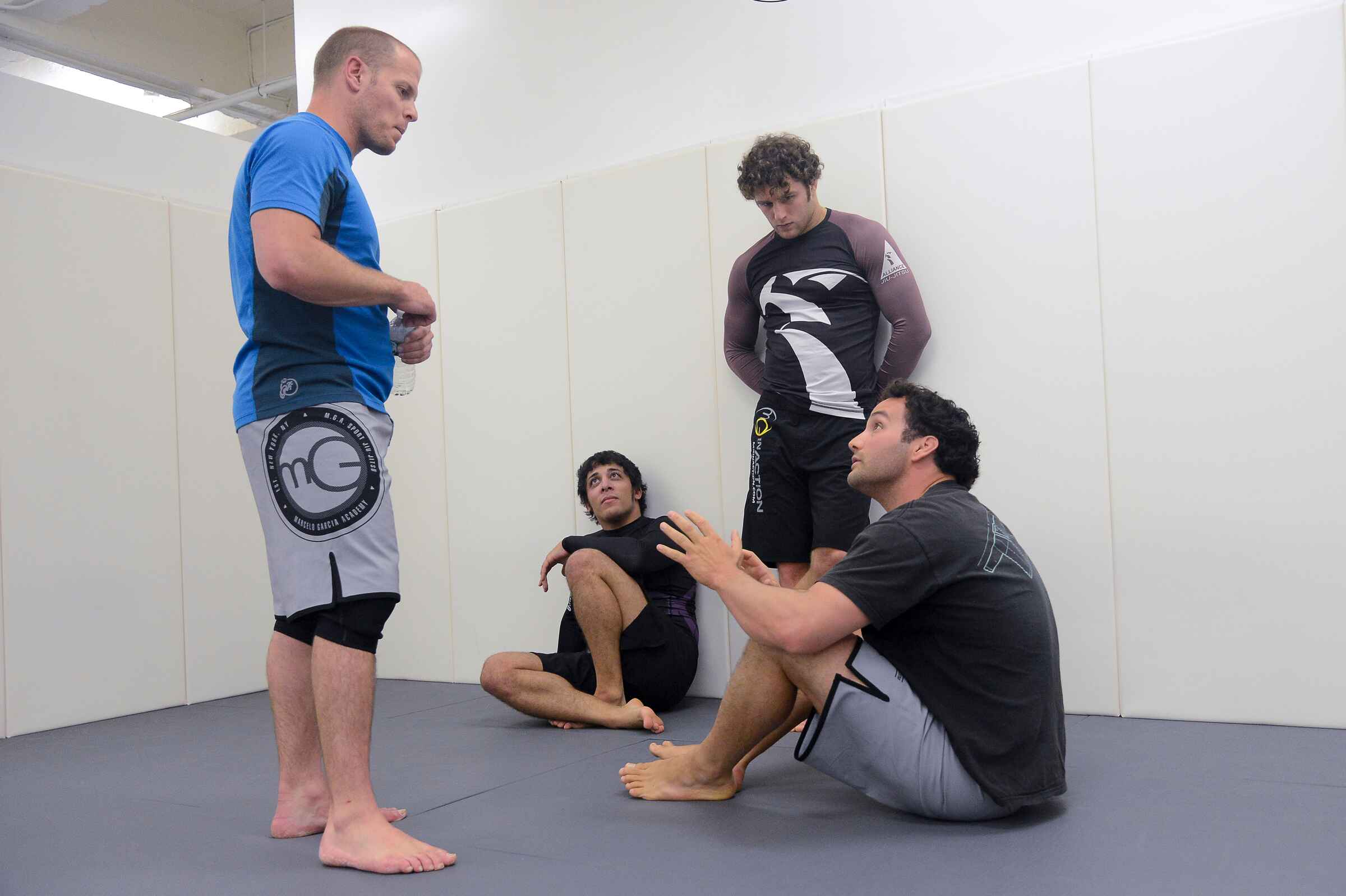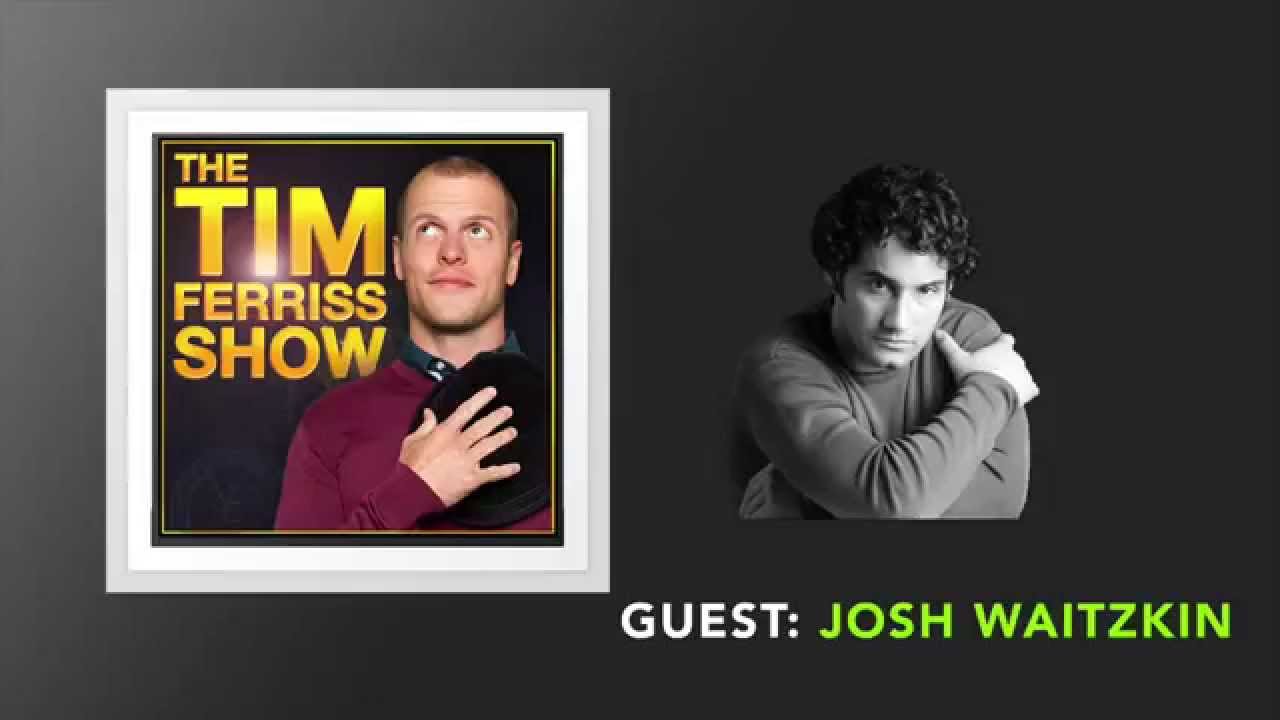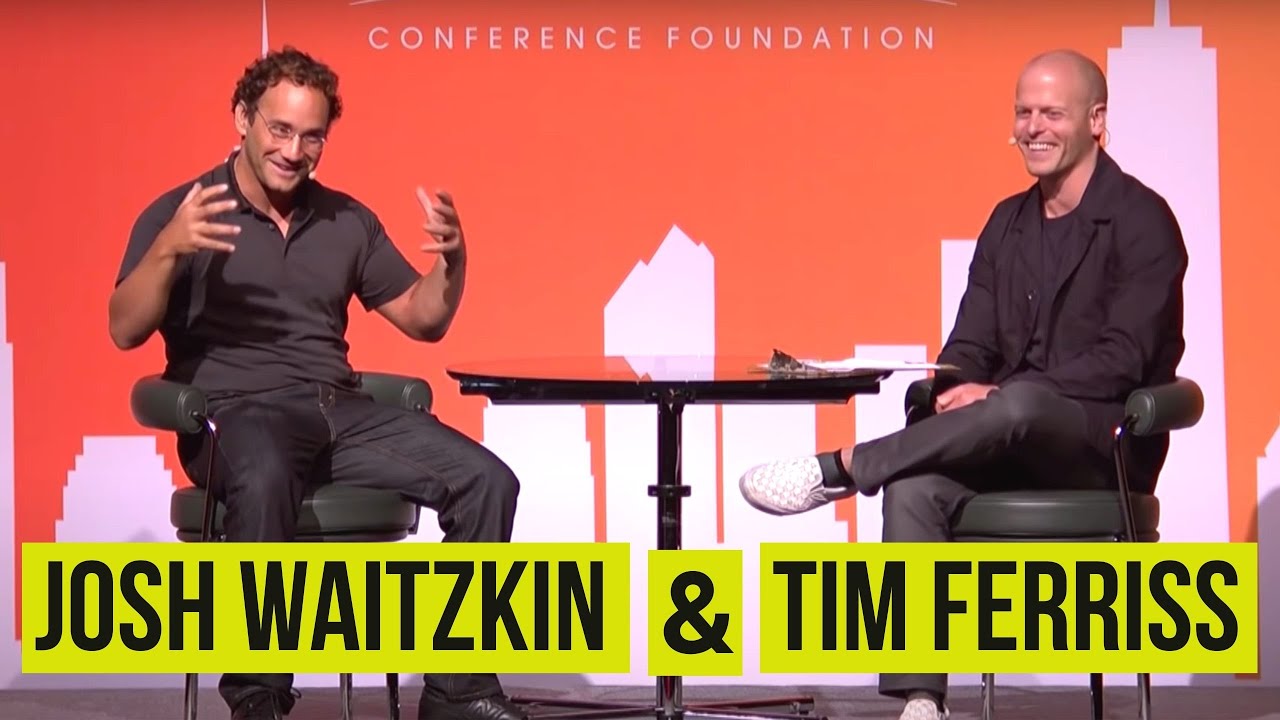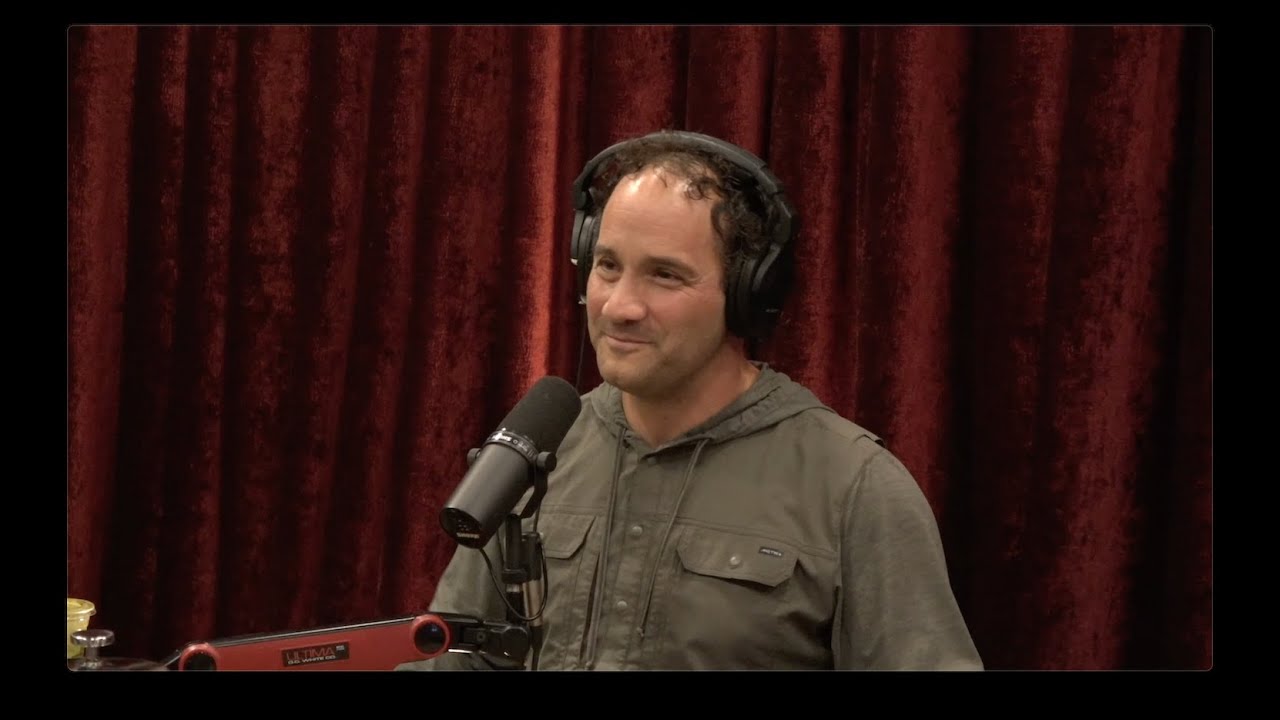
Josh Waitzkin Returns | The Tim Ferriss Show Podcast Summary | 21 Key Lessons
Explore Josh Waitzkin's profound insights on flow states, near-death experiences, training methodologies, and cultivating intuition from his second conversation with Tim Ferriss.
21 Powerful Lessons from Josh Waitzkin's Return
1. Near-Death Experience and Gratitude
The conversation begins with Josh sharing a harrowing experience where he nearly drowned while practicing the Wim Hof breathing method underwater. Despite being an experienced free diver, Josh made a critical technical error by forgetting that it's carbon dioxide buildup (not oxygen deprivation) that triggers the breathing reflex.
After performing multiple underwater swims combined with Wim Hof breathing exercises, Josh blacked out and was unconscious at the bottom of a pool for three minutes before being rescued. Doctors told him he was minutes away from permanent brain damage or death, and his survival was attributed to his years of physical training.
"I've never lived with such a consistent sense of gratitude, beauty, and love in my life. It's just flowing through my body, presence to the exquisite little ripples of beauty in everything I do."
The experience made him reevaluate risk in his life, particularly as a father, while being careful not to "oversteer" or overcorrect based on fear. Josh emphasizes the importance of finding beauty in life's small moments and cultivating deep presence.
2. Finding Flow in Chaos
Josh describes how, as a young chess player facing enormous pressure, he found therapy in achieving flow states. Unlike many competitive chess players who memorize their way to victory, Josh developed a style of creating chaos on the board and finding hidden harmonies within it:
"My style as a chess player was to create chaos... and find hidden harmonies and find flow in chaos."
This approach became a core part of his competitive identity and how he deals with stress. He explains how he deliberately trained himself to function optimally in chaotic environments by keeping his room messy, playing cards with unorganized hands, and deliberately creating disorder that he would then navigate.
3. Somatic/Physiological Awareness
A significant portion of the conversation focuses on developing "somatic awareness" — the ability to sense subtle physiological signals in your body that indicate opportunities, dangers, or cognitive biases before they reach conscious awareness.
"We intuitively can feel things way before we are consciously aware of them... the chess player always senses danger before he sees it just like the hunter will sense the shark or the Jaguar before he'll see it."
Josh explains how he trains elite performers, particularly investors, to develop this sensitivity. He believes this physiological introspection is fundamental to high-quality decision-making. By developing internal awareness, one can sense when they're slipping away from what Robert Pirsig (author of "Zen and the Art of Motorcycle Maintenance") calls "dynamic quality" — being in sync with reality rather than attached to outdated evaluations.
4. Overcalibration as a Learning Mistake
Josh emphasizes the danger of overreacting to mistakes or failures:
"One of the most important learning lessons that I've learned for myself and training elite mental performers is people overseer all the time, they over calibrate."
After his near-death experience, Josh was careful to "sit with this and try to draw the right lessons out of it, not the wrong, and not too big a lesson and not too small." This balanced approach to learning from failure is crucial for continued growth without developing unnecessary fears or limitations.
5. Empty Space vs. Distraction
Throughout the conversation, Josh emphasizes the importance of creating and maintaining empty space in our lives:
"I think that we're living in a world of so much noise, and so much distraction, and of the space being constantly filled... it's remarkable what can happen if we cultivate a mindfulness, the stillness of the waters as a way of life."
He contrasts this with our culture's tendency to fill every moment with inputs and distractions. Josh believes that the clarity to perceive subtle internal and external signals emerges from this cultivated emptiness.
6. Embodying What You Teach
In discussing Carol Dweck's work on growth mindset and parenting, Josh highlights the importance of embodiment:
"The kids see what they embody, not what they say, so we have to embody it... working with these core principles and embodying it themselves first, and then through that embodied intelligence, working with the kids."
This principle applies not just to parenting but to teaching, coaching, and leadership in general. Josh believes that transmission of knowledge, especially at deep levels, happens through embodiment rather than mere instruction.
7. External vs. Internal Orientation
Josh contrasts an internal, proactive orientation with an external, reactive one:
"We want to build a proactive way of life that's fundamentally moved from the inside out, versus a reactive way of life where we're constantly reacting to all these inputs."
He describes how many people, especially in fields like investing, are constantly reacting to external stimuli (checking profit and loss statements hundreds of times daily) rather than working from an internally directed state. This external orientation makes people susceptible to others' opinions and expectations, compromising their unique insights and abilities.
8. The Principle of Scarcity in Learning
Josh discusses how artificial constraints can enhance creativity and learning:
"If you cut those resources down 99%, then you find yourself just zoning in what's most essential, and then if you can learn to add resources incrementally maintaining that potency, it's incredible what you can do."
He notes that most people, when given more resources, tend to dilute their focus and effectiveness. By deliberately limiting resources, we're forced to identify what's truly essential and develop more potent approaches.
9. Thematic Interconnectedness
One of Josh's core learning philosophies is "thematic interconnectedness" — the ability to recognize patterns across different domains and transfer knowledge between seemingly unrelated areas:
"Lateral thinking or thematic thinking, the ability to take a lesson from one thing and transfer it over to another, I think is one of the most important disciplines that any of us can cultivate."
He shares how he applies insights from surfing to investing and other fields. For example, after learning about "swapping boards" in standup paddle surfing (where elite surfers would exchange boards to discover new ways of riding waves), Josh translated this concept to investment teams, suggesting they could "swap analysts" to gain fresh perspectives.
10. Growth vs. Fixed Mindset in Parenting
Josh references Carol Dweck's work on growth mindset versus fixed mindset, noting that many parents intellectually understand the concept but don't embody it themselves:
"We're focusing on the process and not the outcome... the parents are fundamentally fixed... but they've read the material of Carol Dweck... and they want to parent their kids around a growth mindset, but the kids see what they embody, not what they say."
He emphasizes praising children for effort and process rather than innate ability, and demonstrating a growth mindset in your own approach to challenges.
11. Training to Listen to Intuition
Josh describes how he helps elite performers develop the sensitivity to recognize intuitive signals:
"You would sense the feeling of that cognitive dissonance, and not get caught up in sort of the slipstream of that dislocation... you would feel the slip away from dynamic quality."
This involves stilling your internal waters through meditation and other practices, then developing the discipline to actually listen to and act on intuitive signals rather than allowing social pressure or other factors to override them.
12. Slack in the System
Josh emphasizes the importance of building margin or "slack" into one's life:
"In my way of life, I've built a life around having empty space for the development of my ideas, for the creative process, and for the cultivation of a physiological state which is receptive enough to... tune in very deeply to people."
He limits his client load to ensure he has time for meditation, reflection, and deep work. He contrasts this with the common tendency to constantly add resources, activities, and inputs, which often leads to diluted quality and reactive living.
13. The "Firewalking" Process
Josh introduces his concept of the "firewalking process" — learning to gain wisdom from others' experiences with the same emotional and physiological intensity as if you had experienced it yourself:
"The firewalking process is my term for a gateway to cultivating the ability to learn with the same physiological intensity from other people's experiences as we learned from our own."
He explains how people typically learn deeply from painful personal experiences (like getting caught in an armbar in jiu-jitsu) but only gain intellectual knowledge from watching others make the same mistake. The firewalking process involves using visualization and physiological awareness to "burn in" lessons from others' experiences as if they were your own.
14. Meditation Practice Development
Josh discusses approaches to building a meditation practice:
"If people can have the first 2-3 months of meditation practice in a quiet room, then if they start doing it in their commute it's a much... they've sort of built the foundation of it in this really quiet space."
He describes how he helps high-performers develop meditation practices, often using heart rate variability training and biofeedback as "gateway drugs" that help them recognize the benefits of meditation more quickly.
15. How You Do Anything is How You Do Everything
Josh emphasizes that excellence in big moments comes from cultivating quality in daily habits:
"The little things are the big things... it's such a beautiful and critical principle, and most people think they can wait around for the big moments to turn it on, but if you don't cultivate turning it on as a way of life in the little moments... there's no chance in the big moments."
Josh shares observations from Marcelo Garcia's jiu-jitsu school, where the instructor demands quality in everything from how students tie their belts to how they run warm-up circles. This attention to detail creates an environment where everyone is "present to quality" as a way of life.
16. Controlled Training Environment vs. Chaos
Josh describes the progression from training in controlled environments to functioning in chaos:
"We don't ultimately want to be meditating in a flower garden, we want to be able to meditate and have a meditative state throughout our life, in a hurricane, in a thunderstorm."
While he advocates starting practices like meditation in quiet, controlled environments, the ultimate goal is to develop abilities that function even in chaotic, stressful situations—whether that's maintaining presence during a big wave surfing session or making clear decisions during market volatility.
17. Creating Constraints for Creative Development
Josh shares a specific practice for enhancing creativity:
"Forcing yourself at the end of each day to think about what the most important question is in what you're working on... pose the question to the unconscious and wake up first thing in the morning and brainstorm on it."
He also mentions Hemingway's practice of stopping writing mid-sentence to provide a "foothold" for continuing the next day, and he observes that successful journalers typically write less than they feel they can each day, preserving energy and momentum.
18. Reframing Discomfort
Josh shares how he teaches his son to embrace rather than avoid discomfort:
"We would take hot baths together... and then he would want to turn on the cold shower... we'd play what we call the 'it's so good' game... We're reframing cold, cold was a metaphor from something that you bounce away from to something that you can learn to sit with, to be neutral in, to find pleasure in."
Instead of talking about "bad weather" when it rains, they go out and play in every storm, developing language around the beauty of rainy days. This approach teaches resilience and an internal locus of control rather than dependence on external conditions.
19. Race to the Bottom vs. Optimization
Josh discusses the balance between pushing limits and maintaining functionality:
"The race to the bottom is an expression that Eric of Paddle, our surf instructor, uses to refer to constantly dropping in board size... and trying to find a balance between the race to the bottom but also maintaining motivation so you're not just slipping on banana peels for 5 hours straight."
This metaphor, drawn from stand-up paddle surfing, relates to finding the optimal challenge level—difficult enough to promote growth but not so difficult that it becomes demotivating or unproductive.
20. Embracing Your "Funk"
Josh talks about the importance of understanding and embracing what makes each person unique—their "funk":
"We have to embrace our funk... you think about the entanglement of genius and madness, right, or brilliance and eccentricity, understanding that entanglement is always a precursor to working with anybody who's trying to be world-class at something."
Rather than trying to fit everyone into the same mold, Josh believes in deeply understanding each person and building training programs around their unique qualities. This applies to teaching, parenting, and coaching elite performers.
21. Systematic Exposure to Challenge
Josh describes how the best performers deliberately seek out challenges:
"In the fifth round of sparring, the ones who are in the steepest growth curve look for the hardest guy there, the one who will beat him up... while others will look for someone who they can take a break on."
He observes this pattern at Marcelo Garcia's jiu-jitsu school, where the most rapidly improving students consistently seek out the toughest sparring partners, especially when they're already exhausted. This systematic exposure to difficulty accelerates growth far beyond what's possible when avoiding challenges.
Applying These Lessons Through Education
Through his non-profit, The Art of Learning Project, Josh works with schools to help children experience thematic interconnectedness by having teachers across different subjects (math, English, history, sports) simultaneously teach the same underlying learning principles, breaking down the traditional silos between disciplines.
For educators interested in these programs, Josh invites them to visit The Art of Learning Project or contact his team at katie@jwfoundation.com.
Conclusion
At the end of the conversation, Josh reflects on his changing identity from being primarily a competitor to being a nurturer of people—his family, his clients, and children through his educational work. He expresses concern about our increasingly distracted world and makes a plea for cultivating presence, mindfulness, and compassion.
His near-death experience has only intensified his appreciation for the beauty in small moments and the importance of deep human connection. Josh concludes with a warning about breath-hold practices like the Wim Hof method (never practice in water) and a wish that he could share the profound sense of gratitude his near-death experience gave him without others having to go through the same ordeal.
This rich conversation offers countless insights for anyone interested in learning, performance, parenting, or simply living a more present, intentional life.
Implementing These Lessons with MIQ Journal
The MIQ Journal approach directly applies Josh's insights about posing important questions before sleep and capturing insights upon waking. This method is a practical way to implement his ideas about feeding the unconscious mind and creating space for deeper insights.
- Listen to the full Tim Ferriss podcast episode with Josh Waitzkin here
- Explore Josh Waitzkin's educational work at The Art of Learning Project
- Start implementing the MIQ method in your own life with MIQ Journal
Transform Your Thinking with MIQ Journal
Join a tribe of professionals who are unlocking deeper insights and better decision-making through the power of evening questions and morning reflection.
Recommended Articles

Discover Josh Waitzkin's profound insights on mastery, learning, and performance from his conversation with Tim Ferriss, including the MIQ method and principles for excellence across disciplines.
Read more →
Josh Waitzkin shares powerful insights on how he compresses months of deliberate practice into single days through his systematic approach to learning, the MIQ method, and optimal day structuring.
Read more →
Explore Josh Waitzkin's profound insights from his Joe Rogan interview on mastery, learning, and personal growth across multiple disciplines.
Read more →